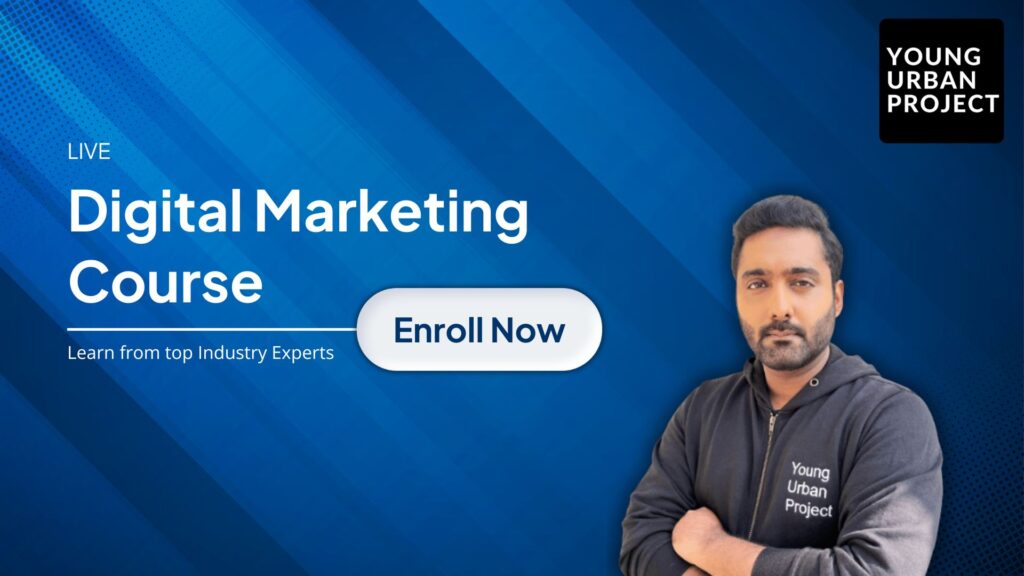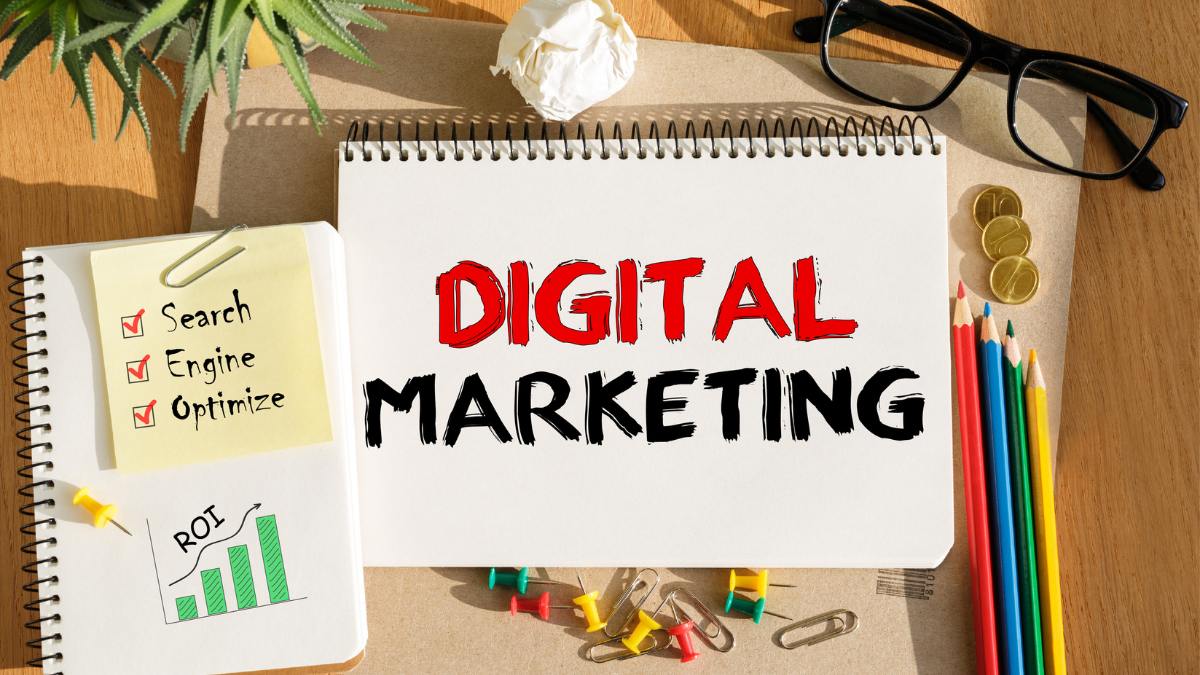Introduction:
Every business today is competing for attention online. There’s too much noise, ads, posts, videos, emails. If people can’t find you when they search, you basically don’t exist. That’s where SEO comes in.
Search Engine Optimization, in plain terms, is about making your site visible when someone types something related to your business into Google. And the role of SEO in digital marketing? It’s simple, it ties everything together. You can run paid ads, do influencer campaigns, or post on Instagram all day long, but if your website doesn’t show up in search, you’re constantly pushing instead of being discovered.
What is SEO in Digital Marketing?
SEO in digital marketing is the practice of setting up your website so that search engines like Google know what you’re about, and more importantly, so people can find you. It’s about relevance. If someone searches “best coffee beans online” and you sell coffee beans, your site should be in front of them.
The difference between SEO and other marketing strategies is that it’s not instant. Ads give you results right away but they vanish when you stop paying. SEO builds up slowly but becomes stronger over time. And it doesn’t live in isolation. Your blog posts rank better with SEO. Your PPC campaigns convert better when users also see you in organic results. Even your social media feels more credible if people also notice you in search.
Importance of SEO in Digital Marketing
Here’s why SEO matters so much:
- Visibility: The majority of clicks go to the first page of Google. If you’re buried on page three, you’re basically invisible.
- Budget-friendly: Ads are like renting space. The moment you stop paying, traffic stops. SEO is more like owning the property, you keep getting results.
- Trust and credibility: People naturally assume the top results are the most reliable. Ranking higher instantly gives your brand a credibility boost.
In digital marketing, SEO is the piece that ensures all your effort, ads, content, social, actually brings in consistent traffic instead of one-time spikes.
Key Benefits of SEO in Digital Marketing
When you break it down, SEO offers a few clear advantages:
- More organic traffic and leads: Higher rankings = more visitors without paying per click.
- Improved site experience: SEO forces you to make your site faster and easier to use, which your audience appreciates.
- Sustainable returns: Paid ads are gone the moment you pause the campaign. SEO keeps paying off months or even years later.
- Competitive edge: If your competitor shows up on Google before you, they’re getting the customer. Strong SEO makes sure you’re the one they find first.
At the end of the day, SEO isn’t just “one more tactic.” It’s the thing that keeps everything else in digital marketing running smoother and lasting longer.
Also read: Advantages and Disadvantages of SEO
Types of SEO in Digital Marketing
A lot of people think SEO is just “putting in keywords.” That’s only one small piece. Here’s the breakdown:
- On-page SEO: All the stuff on your site, titles, headings, keywords, images, and of course the content itself. Basically, making it easy for Google to know what a page is about.
- Off-page SEO: Happens outside your site. Mostly about backlinks (other sites linking to you), but also reputation signals like brand mentions and reviews.
- Technical SEO: This is the part people usually avoid because it sounds nerdy. But things like site speed, mobile optimization, and making sure your pages are crawlable, that’s what actually helps Google index your site properly.
- Local SEO: If you’ve got a shop or serve a local area, this one’s crucial. Setting up your Google Business Profile, collecting reviews, and showing up when people type “[service] near me.”
If you ignore one of these, you’ll probably feel it. They all kind of feed into each other.
Also Read: Difference Between On-Page and Off-Page SEO
Role of SEO in Digital Marketing Strategy
I’ve said this before, without SEO, most digital marketing feels half-done. You can spend on ads, push posts on social, send emails all day, but if your site isn’t findable on search, you’re leaving money on the table. SEO is the base layer. It’s the foundation everything else stands on.
- Why it’s the foundation: SEO makes sure your brand is visible where people are actively searching. Ads interrupt. Social distracts. SEO meets them at the moment they want something. That’s powerful.
- Ties to marketing goals: Most businesses care about three things, getting seen, getting leads, and turning those leads into customers. SEO helps with all three. Visibility comes with rankings. Leads flow in because those people are already searching. Conversions happen easier because they trust what shows up in search.
- Content marketing: If you write content without SEO, it’s like shouting into the void. You might have the best guide or blog, but no one sees it. SEO makes content discoverable. And once it’s ranking, it keeps bringing traffic long after you’ve moved on to other things.
- Paid marketing: People always ask “SEO or PPC?” Truth is, it’s not one or the other. PPC is quick wins, SEO is the long game. Together, you cover more of the search page. Paid ads grab instant clicks, SEO builds trust. Plus, you can use PPC data to figure out which keywords are worth investing in for SEO.
- Technical side: Not flashy, but if your site is slow or broken on mobile, forget it. People bounce. Google notices. Technical SEO keeps the machine running so all your campaigns don’t get wasted traffic.
- Social media + branding: Someone might see you on Instagram or LinkedIn, then later search your brand. If you don’t show up, they move on. SEO makes sure there’s consistency, what they see on social, they can find in search. That builds authority.
- Local growth: If you run a shop, a restaurant, or even a service business, local SEO is everything. Showing up on Google Maps, having reviews, being visible when someone types “near me”, that’s what drives real foot traffic and phone calls.
- Customer journey: SEO isn’t just about the first click. At the top of the funnel, people find your blogs or guides. Middle stage, they start comparing solutions, your case studies, your service pages. Bottom stage, they’re ready to buy, your product page seals the deal. SEO carries them through every step.
- Data + decisions: SEO gives you insights ads don’t. Which keywords are bringing visitors. Where they drop off. What content keeps them reading. That info helps shape everything else, ads, landing pages, even product messaging.
- Future of SEO: It’s shifting. People are using voice search more. Google is leaning into AI answers. Search is getting more conversational. SEO has to adapt, less about cramming keywords, more about understanding intent and answering in a natural way. If you’re not planning for that now, you’ll feel it later.

Enroll Now: Advanced Digital Marketing Course
How SEO Impacts Digital Marketing Success
- When people keep seeing your site in Google results, your brand sticks in their head. Even if they don’t click the first time, they remember.
- Leads feel warmer. They searched, they found you. You didn’t interrupt them with an ad, they came looking.
- SEO is often the first step in a customer’s path. Maybe they read a quick blog today, then next week they look at your product, then later they buy.
- The data is underrated. Search terms, clicks, drop-offs, it shows what people actually want. Helps you make better calls in other campaigns too.
SEO Best Practices in Digital Marketing
There’s no magic button for SEO, but there are some habits that really move the needle:
- Keyword research: Don’t just guess what people are searching. Use tools, check trends, and then build content around those terms.
- SEO-friendly content: Write content that’s actually useful. Google’s smarter than it used to be, it knows when you’re just stuffing keywords.
- Mobile optimization & Core Web Vitals: Most people browse on their phones now. If your site’s clunky on mobile or loads too slow, rankings suffer.
- Link building: Getting quality sites to link to you is still a massive ranking factor. It’s like votes of confidence.
- Regular audits: SEO isn’t “set it and forget it.” Algorithms change, competitors adjust. You’ve got to keep checking and tweaking.
Best practices don’t mean being perfect. It’s more about being consistent and adapting as things shift.
Challenges of SEO in Digital Marketing
- SEO’s slow. You don’t rank in a week. Sometimes you wait months. That can be frustrating when you’re used to quick ad results.
- Google changes the rules. One update and suddenly a page that was doing well disappears from page one. You have to adjust, like it or not.
- The big keywords are crowded. Competing with big brands on “best shoes” or “marketing agency” is tough. Smarter to aim for smaller, less obvious terms.
- And honestly, SEO can’t carry everything alone. You still need ads, social, email… it all works better when combined.
Future Role of SEO in Digital Marketing
SEO isn’t going away, but it doesn’t look the same as it did a few years back.
- People are using voice search a lot more. And the way they talk into Google or Siri is different from typing. They’ll say, “best coffee shop open near me right now” instead of just “coffee shop.” That changes how you write content.
- Google is pushing AI answers (SGE), which means sometimes users get what they want right in the search results without clicking through. That’s tricky, but it also means your brand has to show up as part of those answers.
- Personalization is bigger. What I see on Google might be different from what you see, even if we type the same thing, because it factors in location, past searches, all that.
So the future of SEO isn’t about chasing one #1 keyword ranking. It’s about being useful in all these new formats, so whether someone’s speaking, typing, or even letting AI summarize for them, your brand shows up.
Also Read: Future of Digital Marketing
Conclusion
SEO is what holds most digital marketing together.
Ads are fine, but they stop the minute your budget does. Social media posts come and go fast, most people won’t see them after a few hours. But SEO keeps working. It gives your content legs. It makes sure your brand shows up when people are actively searching, not just scrolling.
That’s why I call it the backbone. Because without SEO, everything else feels temporary. With SEO, you’re building something that lasts.
FAQs: Role of SEO in Digital Marketing
Q: What’s the role of SEO in digital marketing for beginners?
It’s mainly about making sure your website shows up in Google so people can actually find you. Start with basics, keywords, useful content, and a site that loads fast.
Q: How does SEO help businesses grow online?
It brings in steady traffic from people already looking for your product or service. That traffic turns into leads and sales over time.
Q: What are the main types of SEO in digital marketing?
On-page (your content, keywords, titles), off-page (links and reputation), technical (site speed, crawlability), and local (Google Maps, reviews, “near me” searches).
Q: Is SEO better than paid ads?
Not better or worse, they work differently. Ads are quick, SEO is slow but lasting. The best setup is usually using both.
Q: How is AI changing SEO?
Search is getting smarter. Google cares more about intent and context now, less about exact keywords. And AI-generated answers mean your content has to be genuinely helpful if you want to show up.

